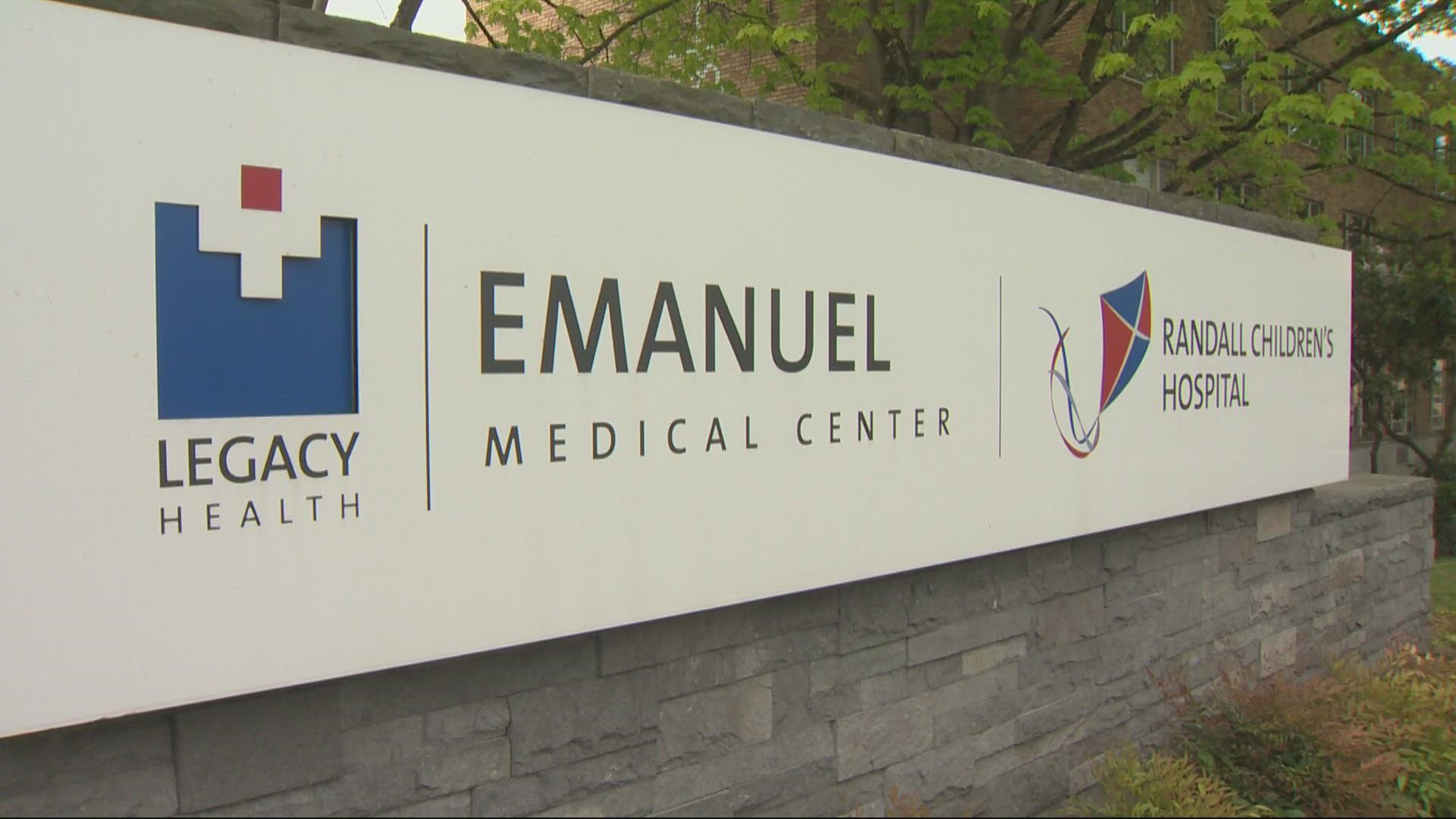PORTLAND, Oregon — It's been almost two years since people took to opening their doors and windows every evening to bang on pans, cheer and clap for front-line health care works at the onset of COVID-19. It’s the kind of support many providers feel devoid of today.
“We feel forgotten, devalued and taken advantage of,’ said a Legacy Health nurse, who asked to remain anonymous. “We are exhausted, working in unsafe conditions, short-staffed and with very low morale."
Those feelings, the nurse told KGW, are exaggerated by a new COVID guidance policy which Legacy Health shared with employees on Friday. It tells employees who test positive for COVID that they can come back to work five days after the start of their symptoms, as long as their symptoms are mild enough to be controlled by over-the-counter medication.
In short, employees who have COVID and are still symptomatic can now treat patients. With staffing shortages, Legacy Health officials said it's a no-win situation that led them to make a tough decision.
“We are increasing risk tolerance to be able to care for the folks who so desperately need it,” said Legacy Health senior vice president and chief medical officer Dr. Seth Podolsky. “If we don't do that, we're going to find ourselves in crisis standards of care much faster as a region.”
As it stands, many health care systems are working under contingency standards of care. Under updated guidelines from the Centers for Disease Control, health care workers with COVID who don't have symptoms can return to work after seven days with a negative test — or in fewer days and without a test if there are staffing shortages. That’s something many in the public may not be aware of.
Currently, Legacy Health does not inform its patients that their health care providers may be working while diagnosed with COVID.
“We don't have any current plans to disclose, but that could change,” said Podolsky. “I don't know of other health systems in our region or the country that are doing that because again what we know about the highly transmissible nature of omicron."
Legacy Health and hospitals nationwide are facing a workforce slashed by illness and understaffing. At the same time, they're treating more people. In California, state health officials just announced hospital staff members who test positive for COVID but don't have symptoms can also continue working. Rhode Island and Arizona have similar guidelines and the list is growing.
“Nurses are very concerned,” said Kevin Mealy, a spokesperson for the Oregon Nurses Association (ONA), a union that represents many nurses in Oregon, although not those at Legacy.
Mealy said the ONA’s concerns extend well beyond Legacy's policy. He pointed to the CDC’s guidelines allowing health care employees to return to work in fewer than seven without a test. Those relaxed guidelines followed studies showing that while omicron may spread more quickly than other variants, it may also produce milder symptoms. However, Mealy noted the CDC also found that even after five days, 31% of people diagnosed with COVID remained infectious.
“So when you take a nurse or front-line provider from being part of the solution as a caregiver and turn them into part of the problem as someone who now has COVID, you've really exponentially worsened the over-all problem,” said Nealy. “There are more steps to limit the exposure to the health care workforce and prevent them from getting sick to start with before demanding that they work sick.”
Nealy said those steps should include improving internal testing and exposure notifications, limiting hospital visitors and requiring N95 masks or equivalent across the board.
“Hospitals are the place we go to get care and to get well,” said Nealy. “We don't want it to be a place where it continues the spread of COVID-19.”

